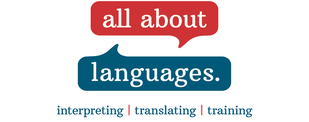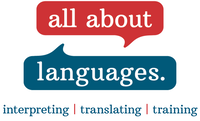|
By Patricia Jaworski When coming for an appointment or a medical procedure, patients are often accompanied by a family member, a friend or a caregiver. The people accompanying a patient play an important role: moral and physical support, an extra set of ears, an advocate and an ally. And sometimes, family members and friends play another role – they provide language assistance. While asking a family member to interpret might seem like the perfect solution – after all, it’s free of charge and easy to arrange – doing so might be not only unethical, but also dangerous. Professional interpreters abide by a code of ethics, which typically includes tenets specifying, among other things, the need for accuracy. Accuracy involves interpreting everything – whether profanity, a silly joke, a critical remark or a serious diagnosis. Family members, with very best of intentions, don’t always accurately interpret what is being said. For example, they might be tempted to soften the message when the patient is critical of medical providers. Doing so takes away from the patient’s autonomy and silences their voice. Additionally, in some cultures it is undesirable to share bad news with the patient as it is believed that it might make the patient depressed and ultimately worse off. As a result, a cancer diagnosis and suggested treatment options may be reduced to “You’re just a little sick and will get better after taking some pills.” Professional medical interpreters undergo basic training in order to qualify for national certifying exams. Once interpreters get certified, they are required to receive continuing education. This ensures that interpreters working in healthcare settings have a solid understanding of medical terminology in all their working languages. However, there is no guarantee that family members will be able to use complex medical terminology in both languages. As a result, instead of the exact words the patient uses to describe their past medical diagnoses and procedures, or the detailed explanation a medical provider gives as they present treatment options, the parties might be receiving abbreviated versions or summaries. Why might this be dangerous? From the point of view of the patient, they have a right to be informed of their care and have to understand exactly what a particular treatment involves in order to consent to it. By definition, consent must be informed and given voluntarily. This might not be the case if a patient is agreeing to a procedure while not receiving the full extent of the information. From the provider’s point of view, making an accurate diagnosis and ensuring adherence to treatment requires being able to communicate with the patient directly (with certain exceptions related to a patient’s age and mental capacity). However, this might not be possible if a physician is working off somebody else’s words, which may be inaccurate due to the lack of medical vocabulary needed to explain something, mistaken assumptions or even malicious intent (imagine someone who is perpetrating abuse interpreting for their victim). To sum up, there are many ethical and legal consequences that can arise from using ad-hoc interpreters such as family members. To mitigate these consequences, it is always best to use professional interpreters who have been trained in all aspects of interpreting in healthcare settings such as being fluent in medical terminology and maintaining confidentiality, accuracy, and role boundaries.
2 Comments
|
Archives
May 2021
|
hours24 hours | 365 days
|
telephone03 6344 7831
|
|


 RSS Feed
RSS Feed

